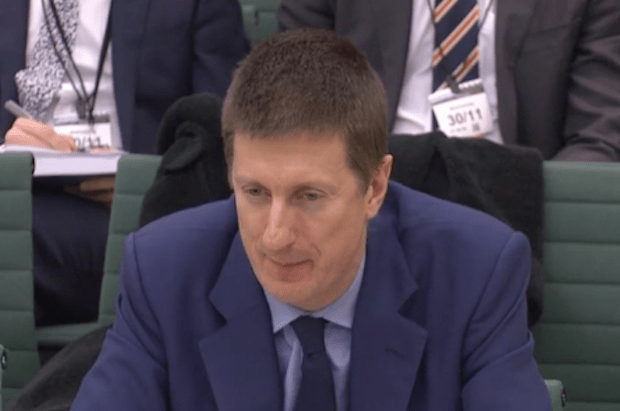Last week the Office for Budget Responsibility revised down its forecasts, suggesting the economy would only expand by 1.4pc in the next year — and warning there would be a knock-on effect on the public finances. While the OBR’s chairman Robert Chote put the gloomy predictions down to uncertainty from the Brexit vote, several Leave champions — including Jacob Rees-Mogg and Michael Gove — have since accuse the OBR of being on shaky ground.
Today Chote was hauled before the Treasury Select Committee to defend the forecasts. While Chote joshed that there was every chance it could be proved wrong as ‘that is the nature of forecasts’, he struck a sombre tone as he warned of the potential fall out from Brexit. He likened the Leave vote to boarding a plane but not knowing where you want to go. When pressed on whether there are any positives to Brexit, he said it could lead to a liberal trade regime which would in turn promote higher growth.
It wasn’t all plain-sailing for Chote, John Mann grilled him on the OBR’s claim that the the economy will be badly hit by a reduction in migration. When quizzed, he conceded that as the OBR do not know what the government’s immigration policy will be, this was based on an assumption. However, the most newsworthy line came when Chote was pressed to put a price on Brexit. He told Labour’s Rachel Reeves that he expects Brexit to cost the government £12bn a year:
RR: You estimate the cumulative increase in borrowing as a result of the referendum between 2016-17 and 2020-21 as £58.7bn. Is it fair to interpret that figure as the cost of Brexit?
RC: Well, we’ve made a series of judgments as you can see. I’m wary of adding up nominal numbers because the more years you add up, the larger the number you get and that’s not necessarily terribly helpful. If you look at the overall level of the change in the budget deficit, before any policy measures, it’s about 1.1% of GDP. The Brexit element of that is about 0.5% of GDP. So that would be one way of thinking of it.
If you look at the adjustment we’ve made, and compare it to the adjustments we’ve made on productivity in past forecasts, it’s the third largest of the ones that we have made over the last 14 forecasts. So it’s not insignificant. But it’s not the biggest.
RR: Do you think a better way of looking at it is to say it’s costing half a percent of GDP?
RC: In the public finances over this period, that would be a reasonable way of looking at it?
RR: What would that be in pounds?
RC: Well, if you’ve got roughly £60bn over roughly five years, it’s roughly £12bn a year, would be another way to do it.
Given the negative reaction the OBR forecast received last week from many Brexit champions, it’s likely they will take this figure, too, with a pinch of salt.







Comments